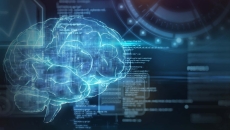Artificial Intelligence
Regulatory difficulties, workforce shortages, financial pressures, evolving patient expectations, an aging population and more will combine to make the next year uniquely challenging, say tech company CEOs, but they're challenges that can be met.
The Translational Research Institute for Space Health and its partners have big plans in the coming years, says Director and Chief Innovation Officer James Hury, who shares what excites him about new avenues in space flight.
SPONSORED
Clinician burnout is a worldwide concern, leading to lost productivity and increased costs. As technology evolves, the use of AI, paperless documentation, and automation tools can have a positive impact on healthcare systems.
Efforts to harness artificial intelligence to streamline healthcare operations and improve patient outcomes accelerated this year, as providers strove to fine-tune algorithms and arrive at deeper insights into clinical and operational patterns.
Leveraging AI, machine learning and neural networks can help healthcare standardize data, comply with info blocking requirements and improve health outcomes.
Grace Chang, cofounder and CEO of Kintsugi, explains how clinicians can identify signs of clinical depression and anxiety in everyday health conversations with the use of voice biomarker technology and machine learning assessments.
Also, Singapore's Minister for Health Ong Ye Kung is participating in a new large-scale population health study.
LA Children's received the funding to predict how critically ill children handle medication by applying machine learning to identify clinically significant patterns from the ICU data of 20,000 patients.
Also, AIIMS will start requiring teleconsultations for follow-ups next year.
Resource constraints and inefficient manual processes are burdening cancer centers across the U.S., but a new report shows how machine learning capabilities outside of EHRs could help improve agility.









